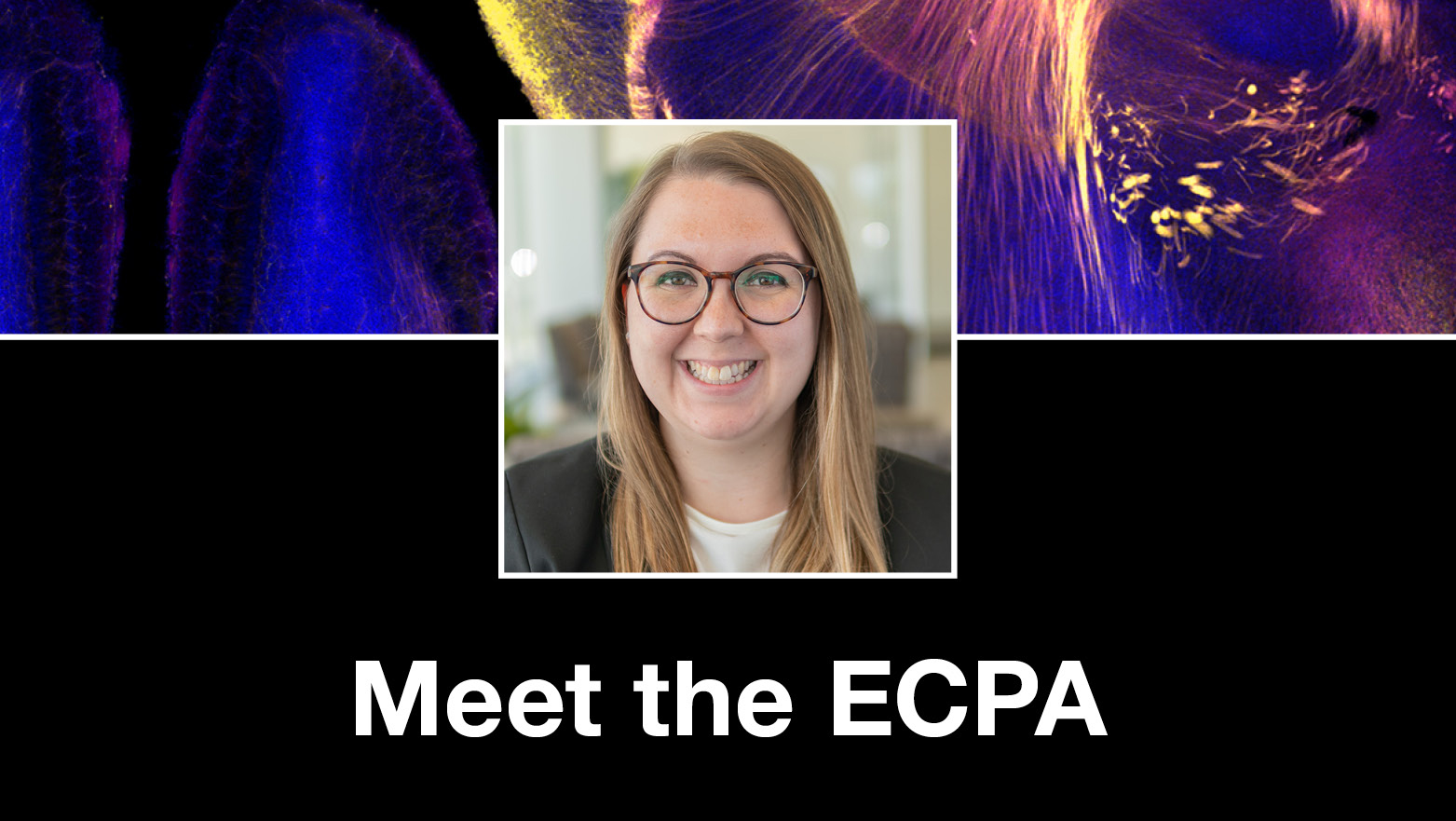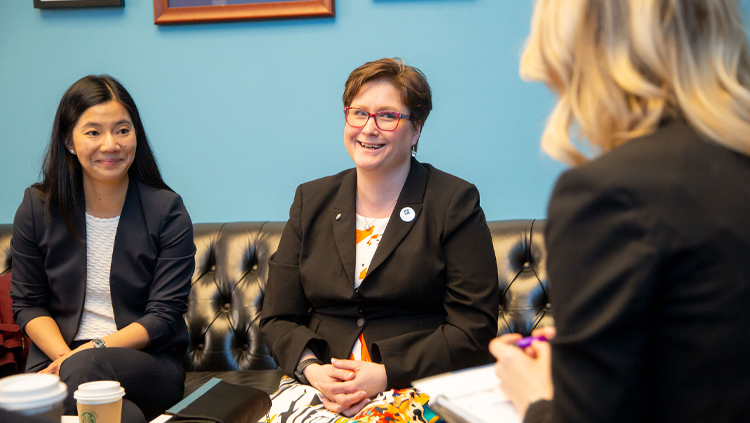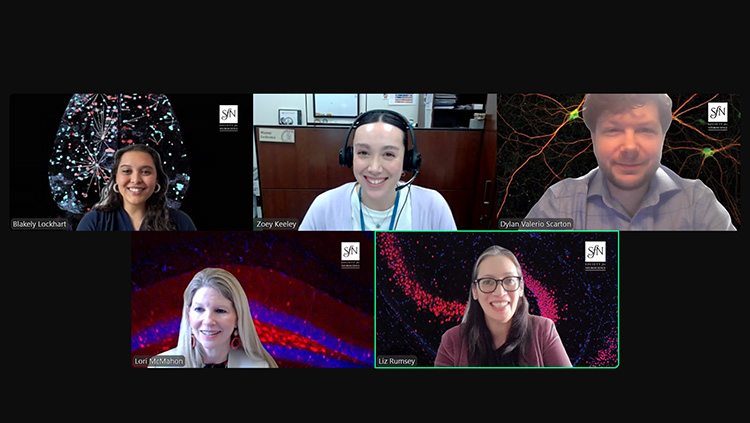Read on to learn about Craig McFarland, the latest interview in the Meet the ECPA series. Craig serves as an SfN Early Career Policy Ambassador, a Dana Foundation fellow, and founder and president of the Harvard Ethics Society.
Describe your journey in neuroscience and current research.
I attended a medical middle school in Florida, my home state. There, I had my first encounter with a human brain and have since been wowed. I still think it’s the most fascinating organ. When I began my undergraduate studies at Harvard, I chose to major in neuroscience and fell in love.
Since then, I have tried to find all ways to learn more about the brain, whether it be joining different neuroscience research labs across Harvard and Mass General Hospital, presenting at conferences, or becoming an ECPA fellow.
Currently, my undergraduate thesis with Christy Denckla is investigating how brain structure morphology intersects with socio-environmental factors to predict post-traumatic stress disorder by working with fMRIs and advanced computational methods in R. I know many people personally who struggle with PTSD, so to be able to have at least some expertise about the science has been fulfilling.
Lastly, I conduct neuro-legal research with Francis Shen at the Law, Ethics, and Neuroscience Lab. Here, I get to a wide range of interdisciplinary work and really get to explore how neuroscience intersects with society in ways I never thought about. For example, we have a project where we teach neuroscience concepts to state judges. I also am conducting archival research on the ways that neuroscience has been weaponized in law and justice from the 18th century to the present day.
Why are you interested in science policy and advocacy?
It's impossible for me to feel fulfilled as a neuroscientist without translating my research into societal impact, and the intersection between neuroscience and policy has always seemed to resonate at the right decibel for me. I preach that the most profound neuroscientific questions are inherently societal: Advances in our understanding of neural mechanisms translate directly to therapeutics for Alzheimer's and brain cancer; investigating neuropsychiatric disorders like schizophrenia and PTSD has informed our conceptions of justice, law, and morality. As a result, the advancement of our society is predicated on advances in neuroscience. But this societal actualization that I envision can't occur if we sequester neuroscience from policy and if we keep neuroscience in ivory towers.
Policies shape funding priorities, ethical standards, and public acceptance, all of which are crucial for translating research into real-world applications. For example, breakthroughs in neuroimaging and brain-machine interfaces offer incredible potential but also pose significant ethical and privacy concerns. Likewise, neuroscientific evidence is becoming increasingly relevant to the law amid a new era of neurotechnology like brain computer-interfaces. So, just as our understanding of the adolescent brain and neurodevelopment shaped the Supreme Court case Roper v. Simmons in 2005, there are so many exciting intersections between neuroscience and society.
I’ve been able to really act on this fascination with the help of my mentor and thesis advisor, Francis Shen. Nearly every day, he pushes me to think critically about the intersection of neuroscience, policy, law, ethics, and society, and what it really means to produce impactful neuroscience research.
What does being an ECPA mean to you? Can you describe your two advocacy-related projects you proposed as part of the program?
I am indescribably honored to have been selected to this cohort and to join the larger Society for Neuroscience community. Being a part of this cohort of neuroscientists, especially as the only undergraduate, has meant trying to find effective ways to act as a liaison between the potential of neuroscience and communities of different demographics. With the help of Shen and the Dana Foundation, I helped launch the first and second-ever Neuroscience & Society career fairs. Across these two conferences, we reached thousands, ranging from middle school students to late-career neuroscientists in over 30 countries. This project has been so exciting to coordinate with leaders in “neurolaw” and “neuroeconomics,” and I learned so much about the ways that neuroscience is advancing society. Likewise, I have been leading different publications with fellow Neuro Advocates, and we have produced different publications across AJOB Neuroscience, the American Journal of Bioethics, and the BMJ Journal of Medical Ethics. As an undergraduate, I feel grateful to have been able to get first-hand experience in the research world, especially as I hope to pursue doctoral studies.
Why do you feel it’s important to speak to your federal policymakers on the importance of continued support of federal investment in biomedical research?
Working with Congress and federal policymakers has been critical, as they can push the needle forward on important neuroscience research. So much great neuroscience work is federally funded, and these studies are helping to advance our standings on disorders, diseases, and prosthetics that could help millions. By acting as an ambassador to neuroscience, answering Congressional questions, and showcasing the power of their support, I hope to foster neuroscience literacy and, hopefully, some meaningful “neuro-legislation.”
How has being an SfN member benefited you in both your professional career and advocacy journey?
Being an SfN member has helped me connect with so many mentors and role models in neuroscience, while also helping me to define what I hope to do as a career. As an undergraduate, I am in a constant cycle of self-interrogating the dreaded family dinner question of, “What do you hope to do post-grad?” I know I want to center neuroscience in whatever I do, but I am always questioning how that would look like. Is it through medicine, academia, law and policy, or all or none of the above? Regardless, there is no better way to answer this question than diving into the field and asking people who have already trodden these potential paths, and being an SfN member has granted me these valuable opportunities of discourse and mentorship.









